The vacation Bible school and day camp hybrid program at Holy Trinity Lutheran Church is best described as a labor of love. The entire congregation, under the passionate leadership of Pastor Katie, makes this an incredible week for the entire congregation.
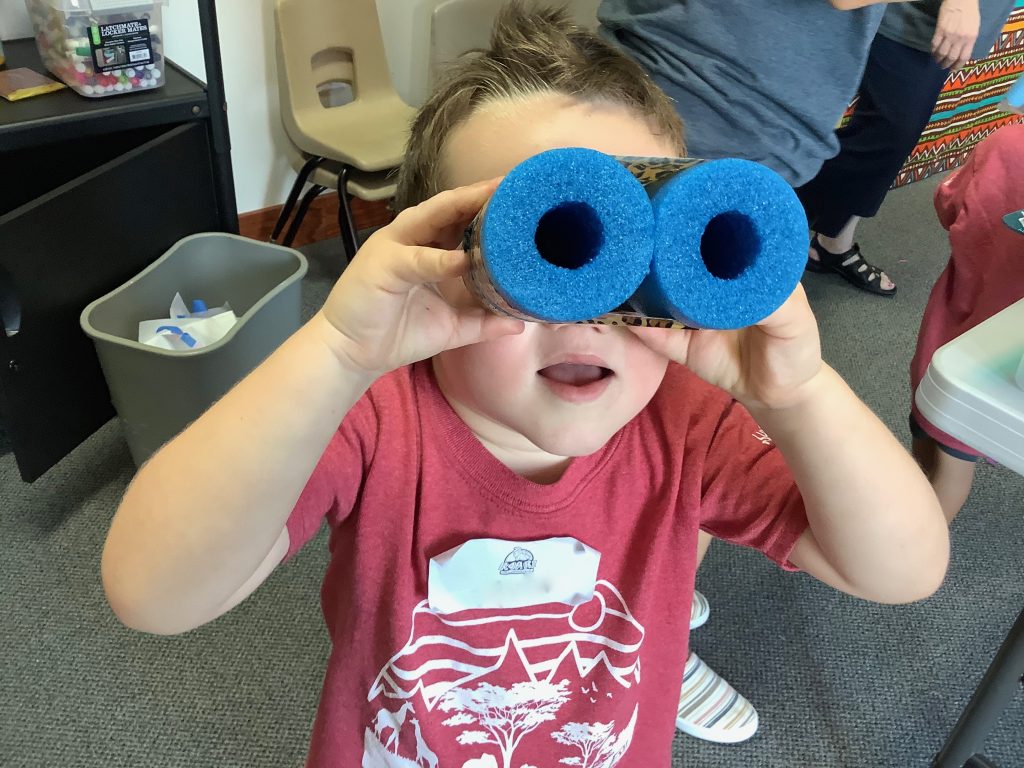
Holy Trinity is located in North Liberty, a fast-growing small city in eastern Iowa with a population approaching 20,000. There are two pastoral staff, with Pastor Tim serving as the senior pastor and Pastor Katie as the pastor of discipleship ministries. The congregation averages around 250 people in worship each week.
The hybrid program involved about 80 children, 9 summer staff from Ewalu Bible Camp, and an impressive 31 junior high and senior high youth, known as Leaders in Training (LT). The LT volunteers served throughout the whole day. Ewalu partnered with 24 day camp sites in 2019, and Holy Trinity was one of the largest.
One can learn a lot about the congregation’s commitment to the day camp program by walking up to the front doors. When I came to the Holy Trinity site, I immediately knew this was going to be a very welcoming experience for all children. The reason being that the decorative work for the day camp started at knee level at the front door. In other words, it was at eye level for a child.
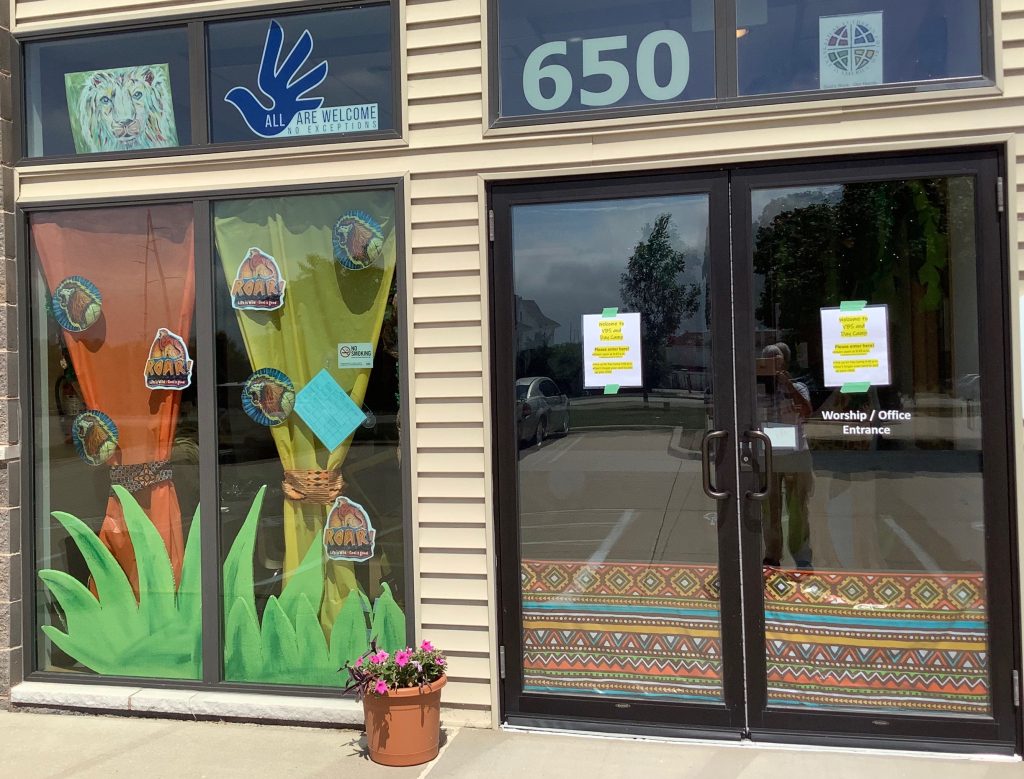
Walking into the building, the experience became even more exciting and intriguing. It was more like the set of a theater stage than a church. The decorative design and detail extended throughout the entire building. The theme of the week of camp was clearly seen through the visual art of the building. The decorations included footprints on the floor giving direction to a child regarding what direction they are to go once they come into the building. This is a very powerful and effective detail.
Pastor Katie is the passion and creative mind behind this day camp. She described it as “having a party for Jesus.” In addition, there seems to be complete congregational buy-in for the day camp. Many volunteers are engaged in the experience. Significantly, the volunteers were multi-generational. There were grandmothers as well as teenagers involved in the experience. The day camp included seventh through senior high youth serving as leaders in training. This cross-generational involvement of volunteers was impressive to see.
“Holy Trinity Lutheran Church is a noisy church,”
said one volunteer affectionately. This is a wonderful way to describe the energy, cross-generational life together, and passion taking place in this location. As a result, it is a friendly place and a powerfully communal place where children are welcome.
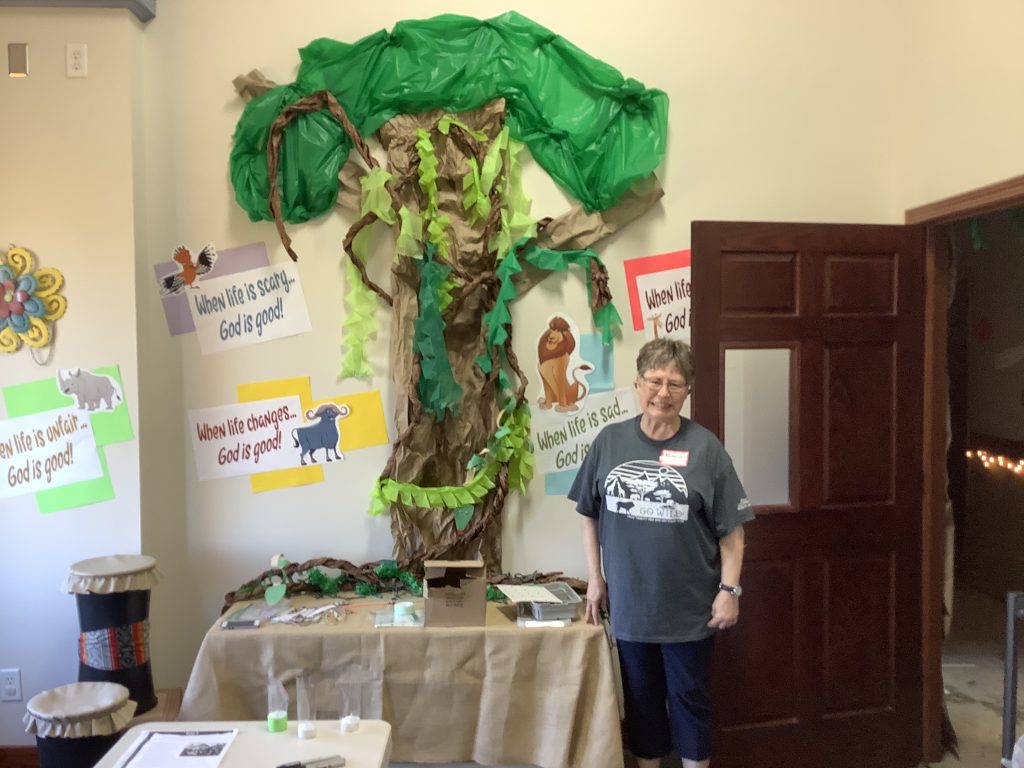
The Ewalu day camp staff work in a hybrid arrangement with the more traditional vacation Bible school (VBS) program. VBS took place in the morning, with the Ewalu staff supporting the efforts of Pastor Katie and her team. Holy Trinity adopted the widely-used Group Publishing curriculum for the morning VBS program, titled “Roar” in 2019 and featuring an African safari theme. In the afternoon, the preschoolers went home and the elementary school children stayed for the Ewalu day camp experience. At that point, the Ewalu staff took over and ran their program, with a separate curriculum used widely among Lutheran summer camps and centered in 2019 on the parables of Jesus. Over the past few years, this hybrid arrangement has come to run more smoothly. It requires a lot of communication and cooperation between the two teams and the two agendas.
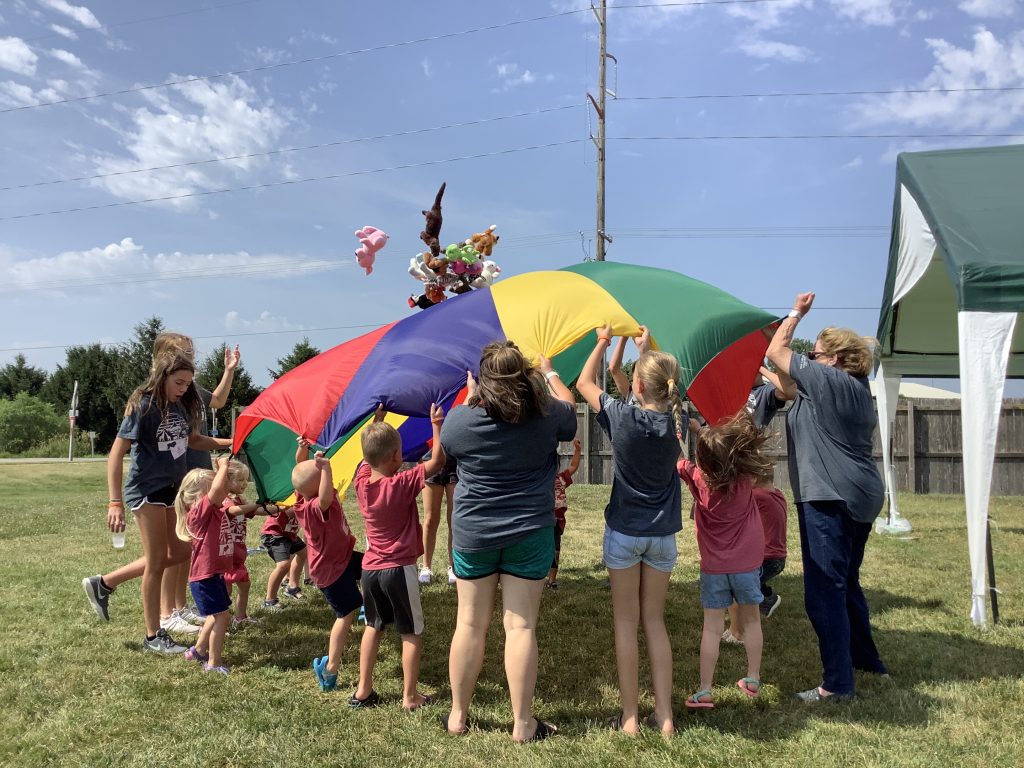
All children in the program get their own T-shirt and all the staff wear staff shirts. This made it very easy for everyone to know who was involved with the program. It also made for good security. The children were divided into “crews,” according to the Group Publishing model used in the VBS curriculum, and those crews were marked well with standards in the sanctuary designating where the child was supposed to go. Each crew had either an Ewalu leader or a volunteer as a leader. In many cases, they had both.
Since this is such an elaborate production, I learned that the planning for it begins nearly a year in advance. The theme for 2020 had already been identified by the time of my visit.
This day camp reaches out well into the community. The teen volunteers and one Ewalu staffer eat lunch at the local community free lunch area in North Liberty. They then help manage and supervise some of the games and activities taking place at this community event. Therefore, this day camp reaches out beyond the walls of the sanctuary and the church building into the larger community.
Both pastors were involved in doing presentations to the children during the morning VBS time. Their presentations were quite captivating. Along with the music that surrounded their work, they held the attention of these children for well over an hour. That is not an easy thing to do. The children reported to me that they like both pastors and they feel comfortable talking to them. And they loved the music and activities from the Roar curriculum. Pastor Tim’s presentation on the exodus story was particularly captivating.
The energy and commitment of the Ewalu staff is amazing. It is obvious they feel called to this work and bring great love and commitment to it. They were very open to my being with them and we had great conversations about ministry, theology and the trajectory of their lives. They were particularly strong when it came to doing skits, building relationships, showing enthusiasm throughout the day, guaranteeing camper safety, and doing interactive activities. And their role as friends and role models to the LT youth cannot be overestimated. The junior high and high school youth really looked up to the staff, and the staff provided great role models. The biggest strength they brought was deep relational connection with children, volunteers and church leaders.
The VBS curriculum from Group Publishing relied heavily on metaphor, even though preschoolers and many elementary school children have trouble understanding metaphor. The curriculum also focused on the death of Jesus and substitutionary atonement, which seems questionable when engaging preschoolers and early to middle elementary school children. Most psychologists and educators would say this kind of conversation should not happen before the children reach the age of 11 or 12.
Contrast the use of metaphor and substitutionary atonement theory with storytelling, which the children clearly loved and understood. The pastors used storytelling effectively during the VBS time, making use of the Group Publishing materials. Storytelling was featured even more prominently during the afternoon day camp time, when Ewalu staff had campers act out the parables of Jesus and engage in interactive games related to the stories. On one memorable afternoon, an Ewalu staff member was reading the Parable of the Good Samaritan to a group of young children out of the Spark Story Bible, which features easy language and bright pictures. The children were crawling all over the picnic table in order to get a closer look at the pictures! This staff member worked very well with young children, which he attributed to having four younger siblings.
However, this was not the case with all of the Ewalu summer staff members, and this is one of several potential growing areas observed at this site. The Ewalu staff reported to me that they had 90 minutes of training in early childhood development. This probably is not enough, and this became clear when multiple staff members asked me for feedback and advice with working with young children. Some struggled with appropriate ways of communicating expectations to the children, adopting a stern approach rather than calm and appreciative. While the staff member noted above used the easily understandable Bible provided to all the staff by Pastor Katie, others read from translations that were simply too complex for children, leading to periodic disengagement. Additionally, some staff grumbled when the children were asking for water, even though it was one of the hottest weeks of the summer, with a heat index hovering near 115 degrees. Age-appropriate mindedness would tell you that elementary and preschool children need lots of water in hot temperatures.
Secondly, the Group Publishing curriculum raised some questions. There was no focus on discovering the gifts and abilities of children as they grow up. Yet, this is what elementary and preschool children need to discover. In addition, the curriculum had a questionable activity that seemed racially insensitive. The use of black balloons and talking about “dark” days seems questionable as an image and language when there were black people in the room. The video that featured a child named “Fortune” on Thursday seemed strange to me. This boy was living in abject poverty with a severely handicapped mother. His life was extremely hard. Yet the narrator sounded like she was reading a script for Sesame Street. The severity of his life situation did not come across, and the theme of the curriculum (“When life is wild, God is good”) seemed to emphasize a “wildness” of tribal life in Africa, a presumably accidental connection that seems culturally tone deaf. And the message “God is good” seemed like a complete disconnect from the life situation portrayed in the video.
The third growing area has to do with the Ewalu staff activities and songs, which were easily contrasted with the high quality of the Group Publishing materials. There was a distinct difference between the quality of arts and crafts being done in the morning with the vacation Bible school program, and the arts and crafts activities being done in the afternoon. And most of the songs being sung during day camp were very old camp songs. Where is the new and fresh music? Expanded time in staff training would again address this.
Importantly, this visit provides a fascinating look at a hybrid program in which VBS and day camp happen in tandem, displaying the strengths and weaknesses of each. Holy Trinity effectively used the high-quality decorations, presentation materials, and crafts provided through Group Publishing, things that the Ewalu day camp does not provide. However, the Ewalu staff brought their energy, enthusiasm, mentorship of young leaders, highly relational programming, and a curriculum more aligned with the theology and philosophy of the church than the Group curriculum. Though there were some growing areas and even some disconnect between the two programs, this day camp is one of the finest day camp programs I’ve seen in the Lutheran Church. From look to leadership it has all the marks of excellence.


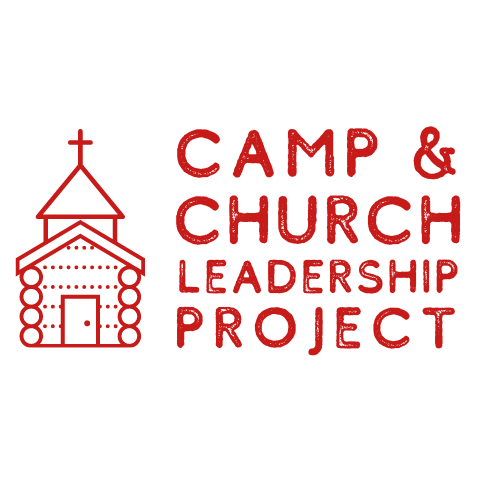
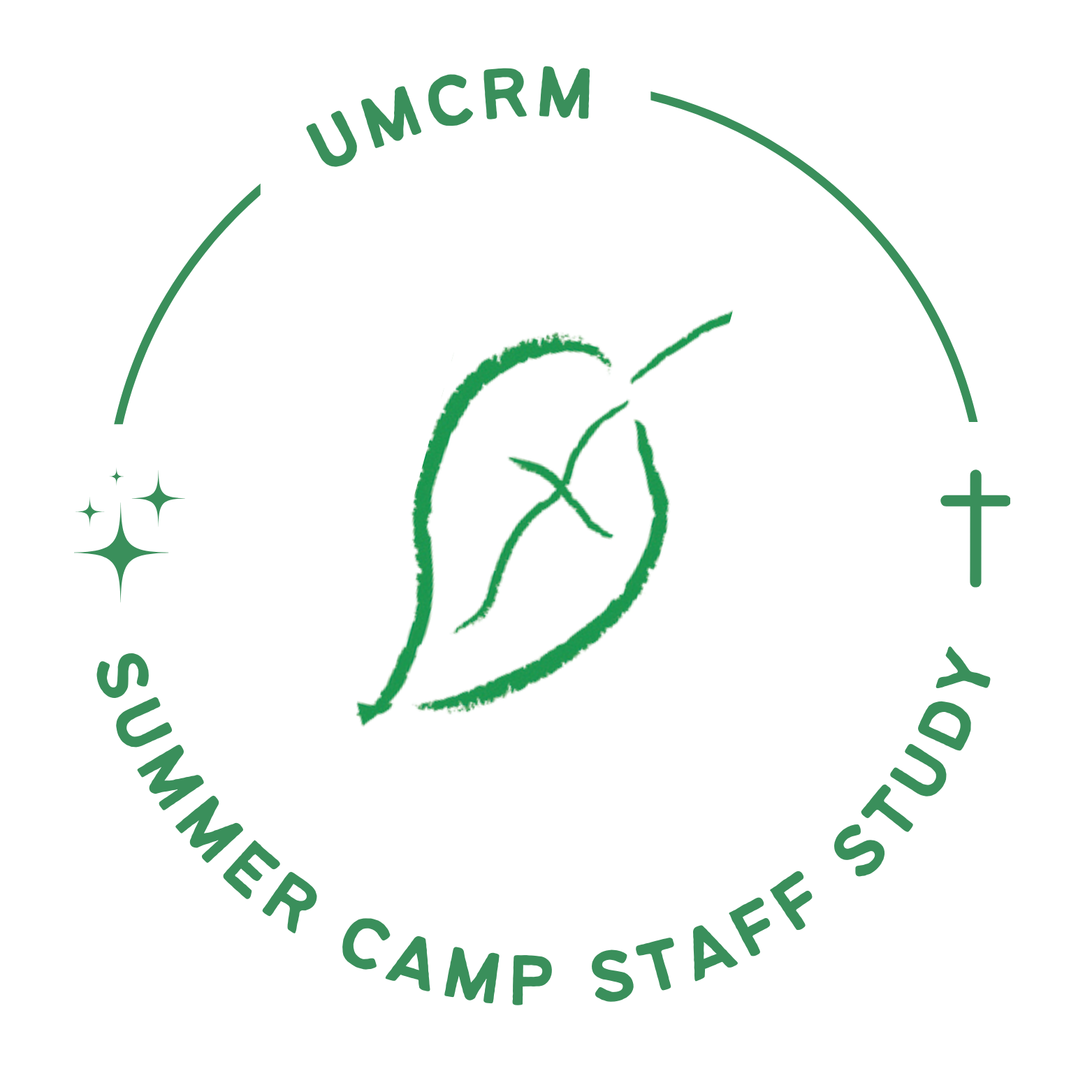

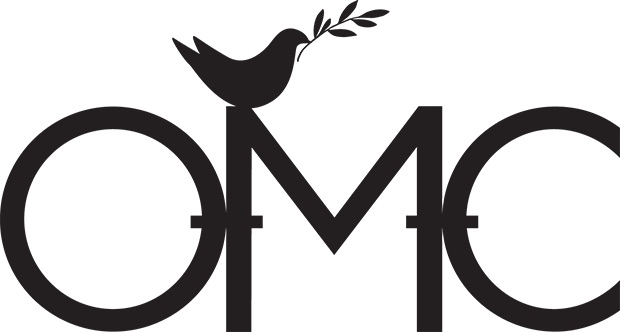


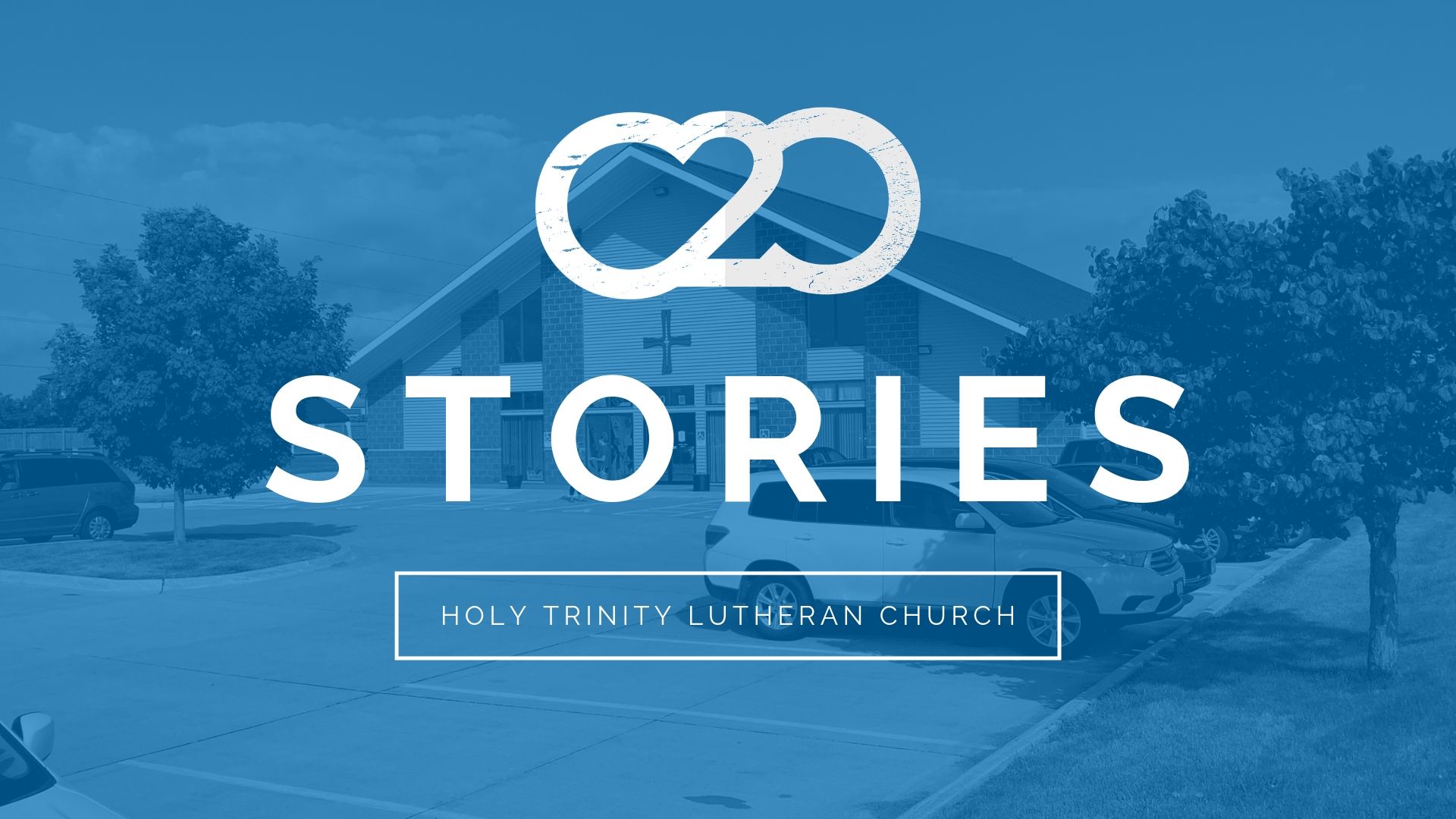
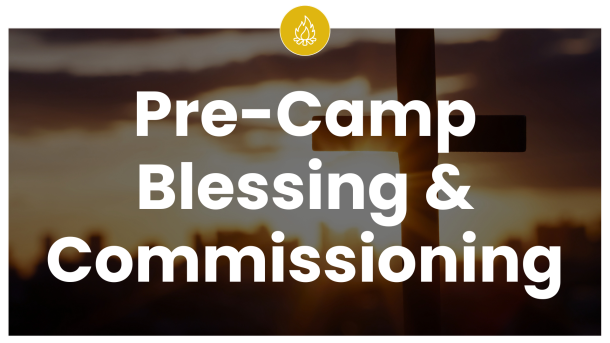
0 Comments